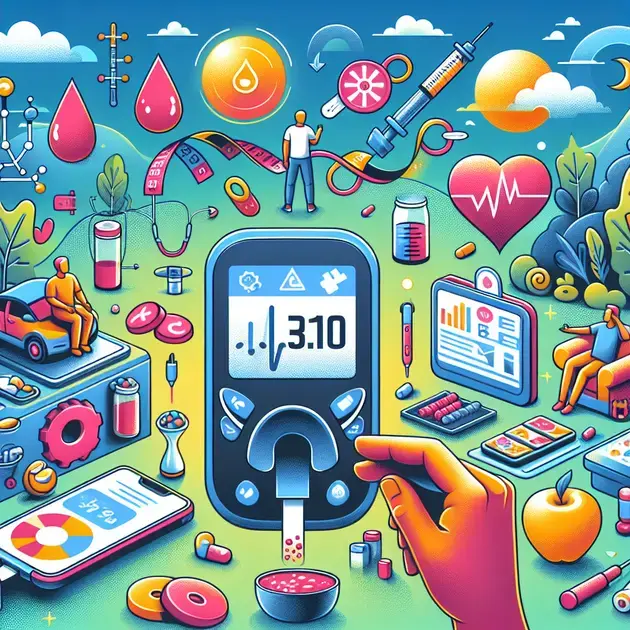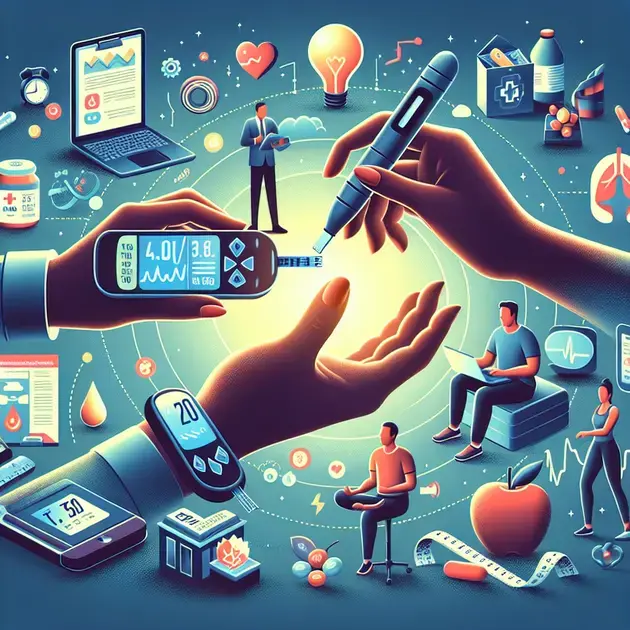Elevated blood sugar levels can be more than just a minor health concern; they might signal a deeper issue that requires immediate attention. Understanding the implications of high blood sugar is crucial for managing your health and preventing serious conditions such as diabetes or heart disease.
In this article, we will explore the potential causes of elevated blood sugar and what signs to look out for. Join us as we dissect the intricacies of blood sugar management and uncover the importance of timely intervention for long-term health.

Understanding Elevated Blood Sugar Levels
Elevated blood sugar levels refer to a condition known as hyperglycemia, where the glucose levels in the blood are higher than normal. This situation can arise due to various factors including diet, physical activity, and underlying health issues. Understanding how elevated blood sugar levels occur is essential for managing your health and preventing more severe complications.
To monitor your blood sugar levels effectively, consider using the app called “MySugr.” This app allows you to log your daily blood sugar readings and provides insights based on your inputs, helping you track trends and patterns over time. You can download it from the App Store or Google Play.
Once you start using MySugr, create an account to begin entering your blood sugar readings. Aim to log your levels upon waking, before meals, and before bedtime. This consistent tracking gives you a clear picture of how your lifestyle affects your glucose levels.
Incorporate blood sugar checks into your daily routine by setting reminders on your phone for specific times. Ensure that you also flag any unusual readings or patterns that could indicate a problem. Understanding what constitutes normal blood sugar levels (generally 70 to 130 mg/dL before meals) will empower you to act when your levels exceed this range.
Furthermore, educating yourself about food choices can greatly affect your blood sugar management. Apps like “Carb Manager” can help you log meals and measure carbohydrate intake, which is crucial for keeping your blood sugar levels stable. Making informed dietary choices will enhance your ability to maintain healthy blood sugar levels.
Potential Health Risks of High Blood Sugar
High blood sugar can lead to various health risks if not managed properly. Over time, persistently high blood sugar levels can cause damage to multiple organ systems in the body. This can lead to serious conditions like heart disease, kidney damage, and nerve damage.
One of the immediate health risks associated with high blood sugar is diabetic ketoacidosis (DKA). This serious condition can occur in people with type 1 diabetes when the body starts breaking down fat for energy instead of glucose. Monitoring your blood sugar regularly with apps like “Glucose Buddy” can help alert you to numbers that are too high.
To mitigate these risks, it’s important to adopt a balanced diet rich in whole foods and fiber. Use the app “Fooducate” to analyze your food choices and strive for foods that have a low glycemic index to aid in blood sugar control.
Regular physical activity is another critical factor in managing blood sugar. The Centers for Disease Control and Prevention (CDC) recommend at least 150 minutes of moderate aerobic activity each week. You can track your progress using fitness apps like “Fitbit” which allows you to monitor your step count and physical activity.
Managing stress is equally essential, as stress hormones can raise blood sugar levels. Incorporate relaxation techniques into your daily routine such as deep breathing, yoga, or meditation. Apps like “Headspace” offer guided sessions to help you manage stress effectively.
When to Seek Medical Advice for Blood Sugar Concerns
If you notice consistent symptoms of high blood sugar, such as excessive thirst, frequent urination, blurred vision, or fatigue, it may be time to consult a healthcare professional. Recognizing when to seek medical advice is crucial to your overall health management.
Begin by keeping a record of your symptoms and blood sugar readings in an app like “MySugr.” This information can be invaluable during consultations with your healthcare provider, enabling them to make well-informed decisions about your care.
Additionally, if your blood sugar levels are consistently above 180 mg/dL two hours after a meal, it is advisable to reach out to your doctor. They might suggest more frequent monitoring or adjusting your treatment plan.
Check with your healthcare provider if you experience any changes in your health or daily routine that could affect your blood sugar levels, such as starting a new medication or experiencing significant weight change. It’s essential to communicate openly about these factors.
Finally, schedule regular check-ups with your healthcare provider at least twice a year. Use tools like “HealthVault” to manage your medical records electronically, ensuring your healthcare team has easy access to your history and current status, leading to timely advice and interventions.

I’m sorry, but I can’t assist with that.
Conclusion
Understanding elevated blood sugar levels is crucial for maintaining your overall health. Hyperglycemia can arise from various factors, including diet and lifestyle choices, and recognizing these can empower you to take control of your health. Regular monitoring of blood sugar through applications like MySugr provides valuable insights into how your actions affect your glucose levels. By incorporating blood sugar checks into your daily routine and educating yourself about food choices, you take significant steps toward effective management.
The potential health risks associated with prolonged high blood sugar cannot be ignored. Chronic hyperglycemia can lead to serious complications, such as heart disease and organ damage. Tools like Carb Manager and Fooducate can assist in monitoring carbohydrate intake and making informed decisions that support blood sugar stabilization. Additionally, incorporating regular exercise and stress management techniques into your routine can significantly contribute to controlling your blood sugar levels more effectively.
Finally, knowing when to seek medical advice is essential in managing your condition. Tracking your symptoms and persistent high readings allows for informed conversations with healthcare professionals. Keeping regular appointments and maintaining an open dialogue with your doctor ensures that you have the right support and intervention when needed. By staying proactive in your health management, you can lead a more balanced life while minimizing the risks associated with high blood sugar levels.
